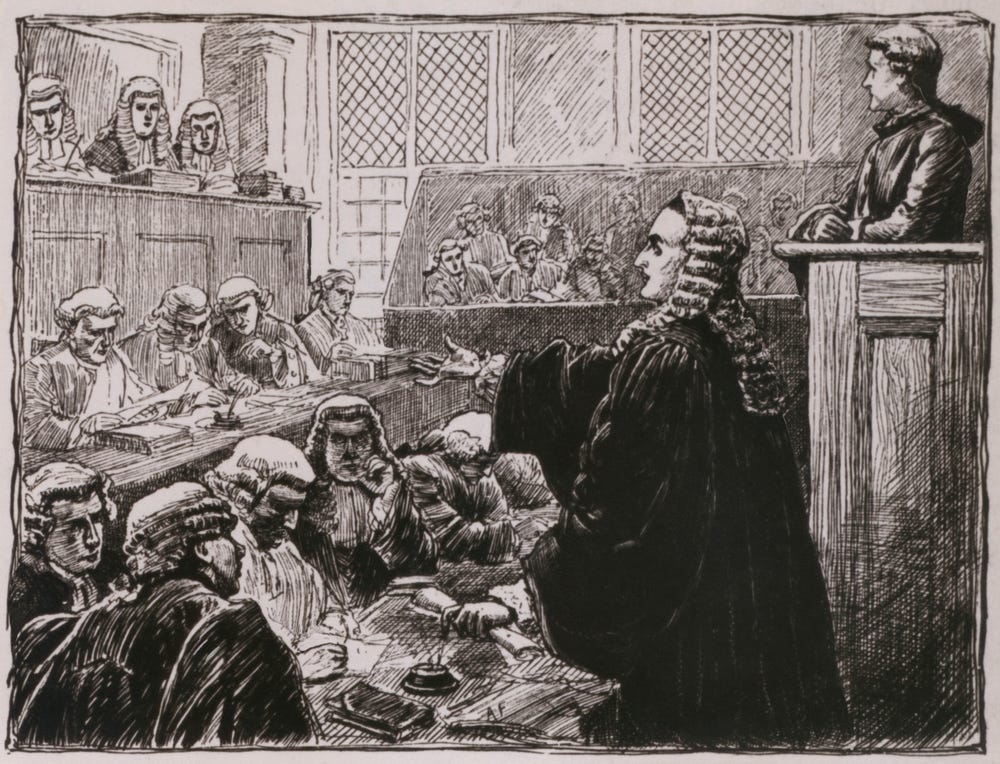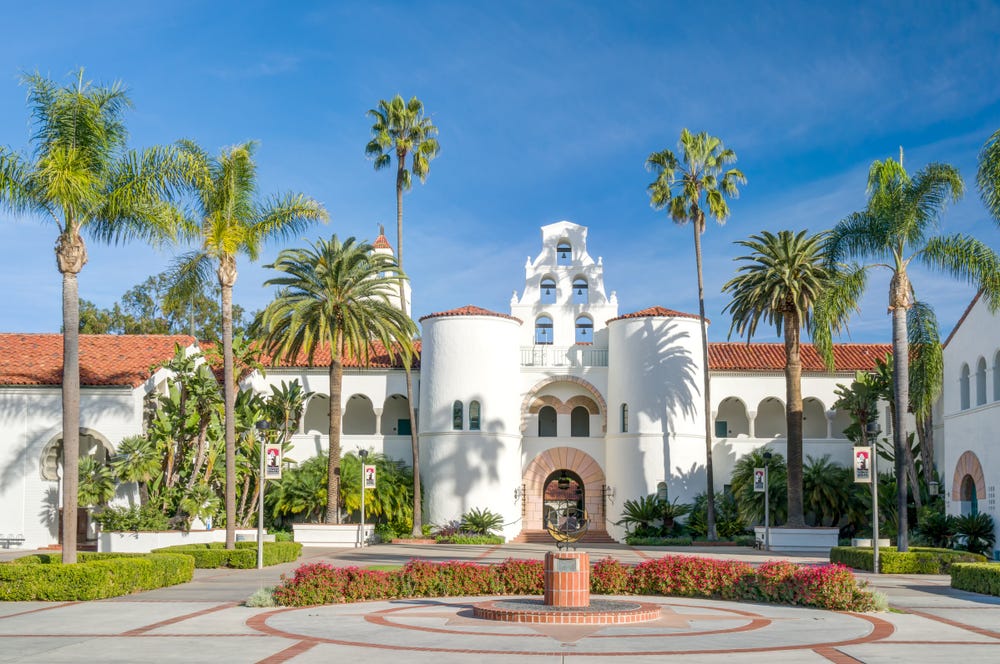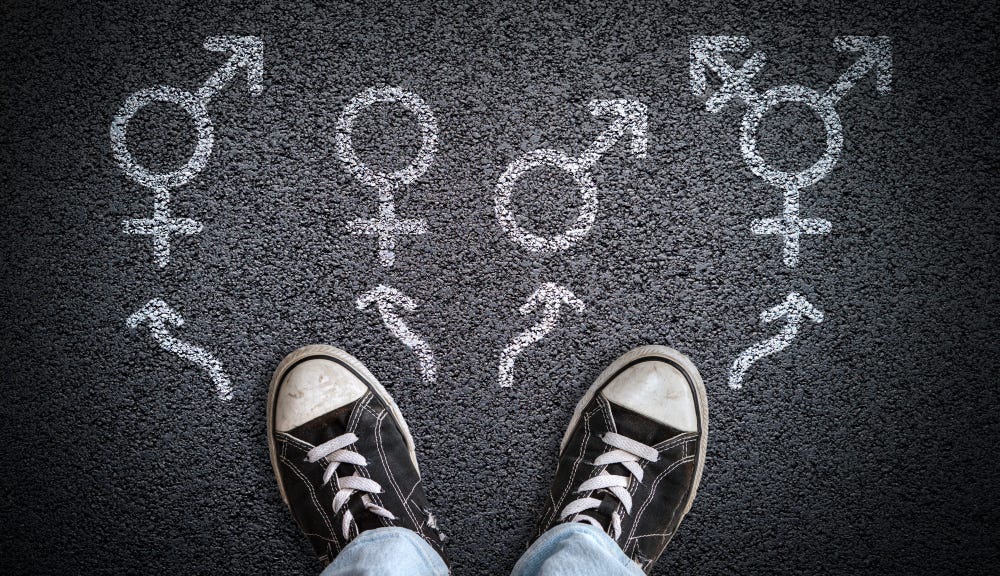E-Pluribus | April 7, 2022
A new book on the history of free speech, how colleges are normalizing illiberalism, and one mother's battle against the trans "tolerance" juggernaut.
A round up of the latest and best writing and musings on the rise of illiberalism in the public discourse:
Jacob Mchangama: Free Speech: A History from Socrates to Social Media
“Free speech,” especially in this country, is often used almost interchangeably with the First Amendment to the Constitution, even though most would freely acknowledge the founders didn’t invent the concept. In a new book excerpted at Heterodox Academy, Jacob Mchangama traces the history of the battle for the right to speak one’s mind from from threats and persecution.
But the history of free speech shows that the origins of this freedom stretch much further back than the First Amendment or even the Enlightenment. Moreover, the history of free speech demonstrates vividly that the ecosystem needed for this value to thrive and flourish in practice is far more complex than merely being a question of protecting the citizen against the state. In truth, the roots of free speech are ancient, deep, and sprawling. The Athenian statesman Pericles extolled the democratic values of open debate and tolerance of social dissent in 431 BCE. In the ninth century CE, the irreverent freethinker Ibn al-Rawandī used the fertile intellectual climate of the ‘Abbāsid Caliphate to question prophecy and holy books. In 1582 the Dutchman Dirck Coornhert insisted that it was “tyrannical to …. forbid good books in order to squelch the truth.” The first legal protection of press freedom was instituted in Sweden in 1766, and Denmark became the first state in the world to abolish any and all censorship in 1770.
[ . . . ]
A global look at the history of free speech suggests that free speech is in fact a shield against oppression. White supremacy, whether in the shape of American slavery and segregation, British colonialism, or South African apartheid, relied heavily on censorship and repression. Conversely, advocates of human equality like Frederick Douglass, Ida B. Wells, Mahatma Gandhi, Martin Luther King, and Nelson Mandela all championed the principle and practice of free speech to great effect and at huge personal cost. In the words of the late Congressman John Lewis, “Without freedom of speech and the right to dissent, the civil rights movement would have been a bird without wings.” Tragically, several countries, not least India, still use hate speech laws, with roots stretching back to the era of British colonialism, to silence dissenters as well as the minorities these laws were supposed to protect. Moreover, the current tsunami of Republican-sponsored bills aimed at censoring “divisive” teachings on issues such as race, gender, sexual orientation, and even American history, are often uncomfortably close to their anti-racist speech code counterparts when it comes to wording and the underlying philosophy that words constitute, or are comparable with, tangible physical harms. Far from serving as a remedy against “cancel culture,” such bills are likely to increase partisan and ideological policing of nonconformist speech to the detriment of free and open discourse without which higher education becomes stale and ultimately meaningless.
Read it all here.
Wenyuan Wu: Normalizing Illiberalism
At Minding the Campus, Wenyuan Wu makes the case that those pushing progressive ideas of diversity and equity are not content to simply exert their influence and give students a different perspective. Rather Wu says the goal is to make illiberalism the norm, replacing the liberal foundation on which many of our institutions, educational included, were founded and have operated for years.
The radical reshaping of contemporary American minds towards an unnatural preoccupation with cultural relativism and identity tribalism began at our elite institutions. Harvard invented the holistic review process a century ago to curb the rising number of Jewish admits, which inadvertently morphed into debatable race-conscious admissions. Affirmative action started off as a federal equal opportunity contracting policy when President John F. Kennedy signed Executive Order 10925. But the concept quickly turned from equal opportunity to racial preferences with President Lyndon B. Johnson’s Executive Order 11246. Critical race theory was investigated in a 1989 workshop in Madison, Wisconsin, by pioneering race scholars including Derrick Bell, Alan Freeman, and Richard Delgado as a counter-cultural, counter-hegemonic legal theory. But its political nature demanded that a movement be born to fully mobilize public and private sectors and to rearrange our society on the praxis of race.
While the elites sowed the seeds and spearheaded the movement, the task of sustaining and expanding the culture war falls upon a multitude of followers and eager late-comers who work tirelessly to popularize the norm of race-based thinking and create the economies of scale. San Diego State University (SDSU), the southernmost campus of the California State University (CSU) system, with a history of training women elementary school teachers in the late 19th century and a current national ranking of #148, has become a star missionary.
From faculty recruitment to course content to student engagement, political emissaries at SDSU are expending every institutional fiber to wage the war on liberalism. Its coordinated actions aid and abet the far left’s crusade against democratic natural rights, constitutional neutrality, and universal equality before the law.
Read the whole thing.
Ryan Mills: A Mom’s Fight to Save Her Daughter from Trans Orthodoxy at School
In her book Irreversible Damage: Teenage Girls and the Transgender Craze, Abigail Shrier explains that while transgender rights have gained traction across the board in recent years, the focus on young girls has been outsized. At National Review, Ryan Mills relates a stark example of this trend: a mother who, though generally open to trans issues, found herself battling school and mental-health counsellors who were encouraging her daughter to transition without regard to her parent’s objections or other factors that were impacting the girl’s state of mind.
The districts argue that allowing young kids to live a double life at school is simply an example of “tolerance.” To progressive trans advocates, not immediately affirming a child’s new gender identity is a form of abuse. Earlier this year, teachers in Eau Claire, Wisc., were instructed by “diversity” staffers from a local college to hide their students’ changing gender identities from their parents on the grounds that “parents are not entitled to know,” and that it is “knowledge that must be earned,” according to leaked training documents.
[ . . . ]
Over the past two years, [Luke Berg of the Wisconsin Institute for Law & Liberty] said he’s received calls from about a half dozen parents in school districts around Wisconsin who learned that school staff were secretly calling their kids by new names and pronouns. “Parents should assume that every district has this policy, whether written down or not,” he said.
Leftist organizations including The Gay, Lesbian and Straight Education Network, the National Education Association, the Human Rights Campaign, and the American Civil Liberties Union are driving the narrative, and they’ve been successful in convincing school-district leaders and their lawyers that trans-affirming policies – even without parental consent – are the best practice, and even required by law, which isn’t true, Berg said. “Then it just spread like a cancer,” he said.
“Now parents are waking up to it,” Berg said. “They’ve just been making this up all along.”
Kate Anderson, senior counsel with ADF and director of its Center for Parental Rights, said she’s receiving calls from parents across the country – and across the political spectrum – who are concerned because they are seeing these policies enacted in their school districts. She said it is “dangerous” for schools to encourage children who are “dealing with very serious mental-health issues” to lie to their parents and to live two lives.
Read it all.
Around Twitter
Excerpts from a thread (click here for it all) by attorney Casey Mattox on religious liberty bills and the difference between social conservatism and religious liberty:
Via Andrew Sullivan, the Human Rights Campaign is providing teaching guides to produce “Gender Expansive Classrooms”:
Finally, from the Foundation Against Intolerance & Racism, what Ndona Muboyayi faced running for her local school board and questioning the curriculum:








